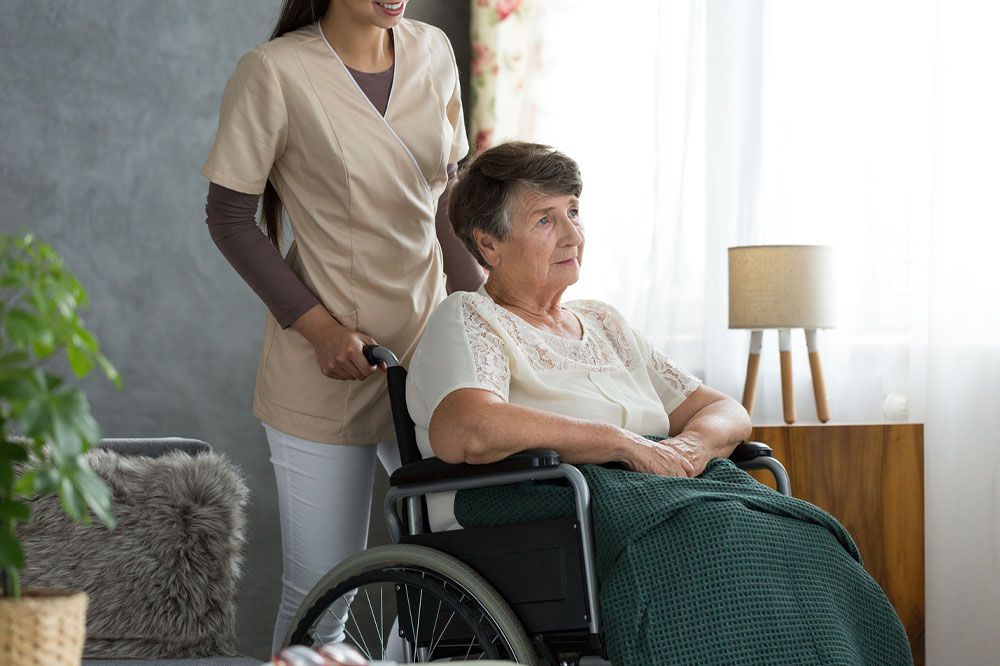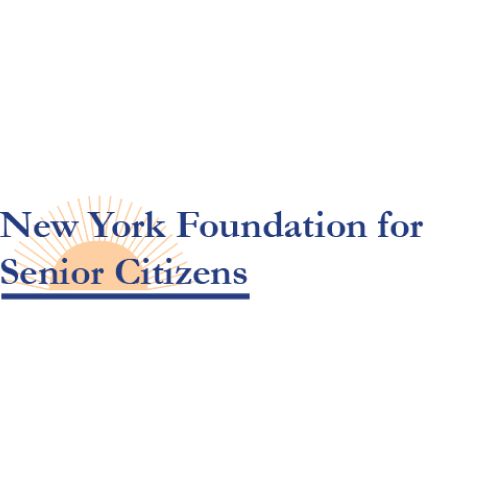Housing and food are necessities that should be easily accessible to everyone in order to build a thriving society. However, the cost of living, healthcare, and several factors make it challenging for one to afford low-cost housing, especially as an elderly citizen. Thankfully, various organizations provide affordable housing options for seniors. This article discusses the how, what, and where of affordable living for seniors and sheds light on organizations that help with the same.
The aging population and concerns
With the rising costs of living and issues with health, the senior population in the country may be finding it challenging to find housing options that suit their requirements and budget. According to research by Senior Living, 25 percent of senior homeowners are cost-burdened, meaning they currently spend a minimum of 30 percent more on housing each month. The percentage of cost-burdened renters is even higher at around 54 percent. Such an expenditure for a senior citizen is a lot considering all the other expenses that need to be taken care of, like insurance, healthcare, emergency supplies, etc. A lot of seniors also need to opt for assisted living services, which can be an additional burden on low-income groups. In a scenario like this, housing, at least, should not be a source of worry. This is where affordable housing options come into the picture.
What is affordable housing?
The concept of affordable housing can vary from person to person, as the idea of how much anyone can spend on a home depends on various factors like savings or income. But what is considered affordable in the most basic sense is that nobody should have to spend more than 30 percent of their monthly income on housing. Anybody spending more than that is in a cost-burdened situation. So, affordable housing essentially refers to housing options that are suitable for low-income individuals or those with a fixed income per month.
Affordable senior housing options
While affordable housing for seniors may be difficult to find, it is not impossible. There are various options, including government-subsidized housing or even NGOs, that work towards providing the best possible solution to these issues. A little research and patience are key to finding the answers that you are looking for. You can also speak to someone in your community who can help you with any information. To start you off, here are some accessible options available.
Low-income senior apartments and condos
These affordable senior apartments and housing options are age-friendly spaces that cater to low-income seniors’ needs and requirements. Typically meant for those above 55 or 62 and older, these apartment communities are accessible and elderly-friendly with amenities like ground-level access to homes, elevators, handicap-accessible units, and other safety features which are extremely important for the senior community.
Depending on your preference, there are multiple options to choose from. You can consider a studio apartment setup, which is a compact open floor plan suitable for one person, or suite-style apartments that have a private bedroom and a common living space, kitchen and bathroom. Seniors can also check out regular one-bedroom or two-bedroom apartments that have a living room, kitchen, bathroom, and bedroom space. If you have been living in your own home before and are now looking for a smaller space, the transition will be easier if you choose an apartment that offers privacy but also provides the comfort of having neighbors around. If you want to explore living in a shared space, the suite-style apartments may be the right option for you.
Who stays in these apartments?
There are many seniors residing in these apartment settings, and they tend to come from different backgrounds and have a multitude of reasons for picking an apartment community. These reasons vary from wanting to be around peers, being divorced or widowed, wanting a lower cost of living, having relocated to be closer to family and friends, wanting a place with minimal upkeep and responsibilities, wanting the freedom to travel without having to worry about the property left behind or even simply downsizing to live a simpler lifestyle. If you can relate to any of these reasons, you can check out housing setups like the ones given below.
Non-Government Organization-supported housing
Several NGOs in the country work tirelessly towards finding solutions to the challenges of affordable housing for seniors. While these organizations may have limited resources, there are some which have come up with reasonable options for many. Here are some such NGO-affiliated affordable housing options for seniors.
Volunteers of America
According to the information shared on their website, they have now spread across 42 states in the country and Puerto Rico and have more than 500 properties under their network. There are more than 20,000 affordable living spaces under this organization, which can be easily accessed by eligible citizens. When it comes to senior housing, they not only provide homes but also offer care options, which include skilled nursing care that can be extremely useful for those living alone. Different housing options can be availed of by putting in the zip code on their website and going through the search results.
Good Samaritan Society
This organization caters to several different needs of the society, including finding affordable housing solutions for seniors who approach them. They have options like independent living, senior apartments, twin homes and duplexes, assisted living, memory care assisted living, and affordable senior housing. They have other basic services that you can avail of while living in their housing complexes, for example, utilities, maintenance, housekeeping, meal programs, and transportation. Depending on your arrangement, you can pay a monthly fee to them or select the kind of services you choose to avail of and pay for them separately. There are also some health care services available at an additional cost if needed. Here are some of the top benefits of Good Samaritan Society Housing:
- The security of having friends and neighbors nearby is a huge plus when living in these community apartments.
- Assisted living facilities like housekeeping that help you keep your home clean and tidy, along with repair work.
- Added security for those living by themselves.
- The choice of being driven for any appointments or other requirements.
- Participating in social and other wellness activities with the rest of the residents.
- Meal programs that don’t require you to hire a cook for daily use.
- HumanGood
This non-profit organization operates several communities throughout the country, with a focus on providing high-quality, affordable housing for seniors who may need financial assistance. HumanGood’s affordable housing communities typically offer a range of amenities and services, including on-site dining, transportation services, and recreational activities. They also offer various levels of care and support, ranging from independent living to assisted living and memory care.
One of the key benefits of HumanGood’s affordable housing communities is that they are designed to meet the unique needs of seniors. For example, many of their communities offer single-level living, wheelchair accessibility, and other features that make it easier for seniors to live independently. HumanGood also offers a range of financial assistance programs to help seniors who may be struggling to afford housing. This includes programs that provide rental assistance, as well as programs that help seniors access government benefits such as Social Security and Medicare.
Mercy Housing
The organization operates over 130 communities across the country, with a focus on providing high-quality, safe, and affordable housing for low-income seniors. In addition to providing affordable housing, Mercy Housing is also committed to creating strong, supportive communities for the elderly. The organization works closely with residents to organize social events, activities, and other programs that promote social engagement and well-being.
Cooperative housing for seniors
This is a type of housing community where residents collectively own and manage the property. It is specifically designed for seniors who want to live independently but also want the benefits of community living and the security of ownership. In senior cooperative housing, you will typically purchase shares in the cooperative and become a member of a cooperative association. These shares give you the right to occupy a unit in the housing complex, as well as a voice in the management and decision-making of the cooperative.
How is cooperative housing different from homeownership?
Individuals own their property in traditional homeownership, whereas in a cooperative, the members collectively own the entire property. This means that you share the responsibility for maintaining and managing the property, as well as any expenses associated with it.
In terms of financing, senior cooperative housing typically involves a monthly fee that covers the costs of maintenance, repairs, and other expenses associated with the property. The fees are usually determined by the cooperative association and are based on the costs associated with running the property.
Benefits of cooperative housing
One of the key benefits of senior cooperative housing is that it provides you with a sense of community and support. By living in a cooperative, you can socialize with other members, participate in activities and events, and receive support from the neighbors. Another benefit is that senior cooperative housing is typically more affordable than traditional homeownership or renting, as the cost is shared among the members of the cooperative. Additionally, because you own the property collectively, you will have greater control over the management and decision-making of the community. This is a model that has been successful in many communities and can provide a valuable alternative for someone who is looking for affordable, high-quality housing options.
HUD housing for seniors
There are some housing programs started by the government, specifically by The Department of Housing and Urban Development, which cater to the requirements of seniors looking for affordable housing options. Let’s look at the two main programs run by them: Section 8 Housing Choice Vouchers and Section 202 Supportive Housing for the Elderly.
Section 8 Housing Choice Vouchers
Section 8 Housing Choice Vouchers is a program administered by the United States Department of Housing and Urban Development (HUD) to assist low-income families, the elderly, and the disabled in affording decent, safe, and sanitary housing in the private market.
Under this, the eligible households, or seniors in this case, receive a voucher that can be used to help pay for rent in privately-owned rental units that meet certain criteria for health and safety. The voucher amount is based on your income and other factors, and you are responsible for paying the difference between the voucher amount and the actual rent. The Local Public Housing Agencies distribute these vouchers, and the landlord gets the rent directly on your behalf while you pay the remaining difference to the landlord.
Eligibility for the voucher
The program is designed to provide affordable housing for those in need and to prevent homelessness. The HUD provides funding for the program to public housing agencies (PHAs) across the country, which, in turn, work with landlords to provide eligible families with housing options. To be eligible for the Section 8 program, applicants must meet certain income requirements, which vary by location, and pass a background check.
Section 202 Supportive Housing for the Elderly
This is a federal program that provides funding for the development and operation of supportive housing for elderly individuals with low incomes. The program is administered by the U.S. Department of Housing and Urban Development (HUD), and the main goal of Section 202 is to provide safe and affordable housing for elderly individuals who may have difficulty affording market-rate housing or to those who require supportive services to help them live independently.
Under this program, there is funding provided to some private developers and also some NGOs who build or renovate properties to cater to senior housing needs and requirements and are responsible for its management.
Supportive services available
Some of the supportive services that may be offered in Section 202 properties include:
- Assistance with daily living activities
- Transportation services
- Health and wellness programs
- Social and recreational activities
- Counseling and case management services
Aside from providing supportive services, Section 202 properties also offer affordable rent, typically set at 30 percent of a resident’s income. This makes them an attractive option for elderly individuals who may be struggling to make ends meet on a fixed income. To be eligible for Section 202 housing, individuals must be at least 62 years old and have incomes at or below 50 percent of the area median income. Priority is given to applicants with the greatest need, such as those who are homeless or at risk of becoming homeless.
Additionally, seniors can check out several housing programs that are veritable communities offering various levels of management, assistance for seniors, independent living apartments, and more.
Virtual retirement communities
If you are a home-owning senior, this may be another feasible option for you. Virtual retirement communities are local, grassroots NGOs that help seniors stay connected with each other in the locality and also provide a variety of accessibility services. Some of these services include helping with grocery shopping, providing transportation, tree removal, social activities, and group outings for all the members and such. Basically, seniors get to enjoy the benefits of affordable independent living, while having a support system.
The average fee to be a part of a virtual retirement community is around $450 a year; however, there are smaller localities in which you can pay as little as $125 a year, so it all depends on where you are staying. Since you are already living in your own home, this does not cover any rental expenses, just employee wages and also the cost of the activities and services provided. The website Village to Village Network is a great place to start looking for local retirement communities that you can be a part of and avail the benefits.
Adult family homes or adult foster care
This is a type of residential arrangement in which up to six seniors live together in the same house. You will have your own private bedroom, but the living room and kitchen is a common space for everyone. These kinds of residential homes need to go through a proper inspection and approval process by the Department of Family Services to ensure that everything is senior-friendly. The home is monitored by the department and run by supervisors along with a team of other experts like dieticians, social workers, counselors, nurses and other professionals needed. These people help provide daily assistance with chores like meals and housekeeping and also organize social activities that help keep you occupied and entertained.
Finding a roommate
Just like anyone would find roommates to afford rent in a nice apartment, finding roommates for senior housing is exactly that! This is a popular concept for adults who are 50 plus and want to manage their house expenses, mortgage, property tax and other costs by sharing it with a housemate. If you need assistance in finding senior housing, you can look up phrases like “low-cost housing for seniors near me,” or “affordable senior housing” followed by your location, like Tulsa or California.
Aside from that, thankfully, there are some trusted ways in which you can find a housemate for yourself, and here are some of the companies that can be helpful in this search.
New York Foundation for Senior Citizens
This organization can help pair seniors who have a spare room in their home and are willing to rent it out to another senior. The social workers go through all the profiles and applications to see potential matches and also arrange meetings between the individuals to see if the requirements and expectations fit. The goal is to be able to provide safe and affordable living for both the parties.
Senior Homeshares
Just like any apps work these days, you can simply sign up and fill out a form and match with potential roommates. If you are unable to navigate through the application, you can add a “helper” to your profile; they can be your kid or grandkid who can help you through the application. If you see something which fulfills your requirements, you meet the other senior and discuss living arrangements.
Silvernest
Like other organizations, Silvernest also aims to provide a safe living arrangement for senior citizens. They have both a free and paid version of the application. The free version allows you to browse house and roommate options, but the paid version also adds a background check as one of the criteria. This is important, especially since both parties know nothing about each other.
Affordable housing in various localities
Exploring the HUD rental help page is extremely useful in understanding housing availability in various places. You can check for several localities offering retirement communities and low-cost senior housing in various places like Tulsa, Bay Area, Owassa, Springs, Oklahoma, and more. There is a resource locator tool available, which helps you find subsidized apartments, and you can get in touch with the manager directly. There is also a list of affordable apartment listings by county, which is updated quarterly to keep the information as new as possible and avoid any unavailability in houses.
Other options include looking up PHA listings, which lets tenants directly connect with homeowners and apply for voucher programs. There is a list for every region, so just search for a city or state you are looking for, and you will find the listing. You can also get in touch with the government department directly for any rental queries, including things like housing choices, and public and Native Indian housing resource centers. If you are feeling lost with the process, you can contact housing counseling agencies for advice on renting, buying a home, foreclosure avoidance, credit issues, reverse mortgages, and such.
If you are in a housemate setting, there are local tenant rights, laws, and protections which should be read carefully to protect yourself and your interests. Always let a family member know where you are residing to allow for any emergency-related communication.













There are no comments yet